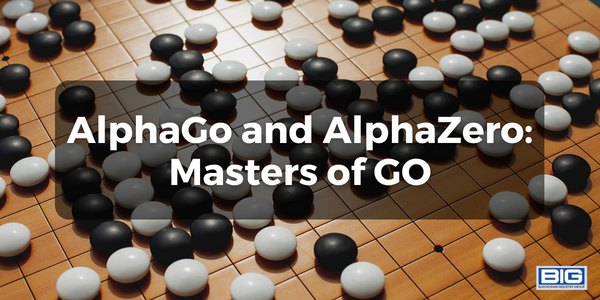
Go is a two-player board game that originated in ancient China. It is played on a grid of 19×19 lines, and the objective is to surround more territory than your opponent. The game is challenging for a number of reasons:
- Complexity: Go is a complex game with a large number of possible moves. The number of legal positions in Go is estimated to be more than the number of atoms in the observable universe, making it one of the most complex games ever invented.
- Strategy: Go requires a high level of strategic thinking and planning. Players must think several moves ahead and consider the long-term consequences of each move.
- Intuition: Go also requires a strong sense of intuition and the ability to recognize patterns and make intuitive leaps.
- Creativity: Go allows for a high degree of creativity and flexibility in terms of strategy, as there are many different ways to approach the game.
- Adaptability: In Go, players must be able to adapt to changing circumstances and adjust their strategy as the game progresses.
AlphaGo is a computer program developed by Google DeepMind to play the board game Go. It is notable for being the first computer program to defeat a professional human player at the game of Go, which is widely considered to be more complex and challenging than chess. AlphaGo was developed using a combination of machine learning algorithms, including deep neural networks, which allowed it to learn from millions of past Go games and improve its play over time. AlphaGo made headlines in 2016 when it defeated Lee Sedol, a top-ranked Go player, in a five-game match. The match was seen as a major milestone in the field of artificial intelligence and sparked renewed interest in the game of Go. AlphaGo was followed by a series of successors, including AlphaGo Master and AlphaZero, which were able to achieve even greater levels of play.
After his defeat, Lee Sedol went through a period of soul-searching and reflection. He admitted that he had been caught off guard by AlphaGo’s unconventional and creative style of play, and he vowed to study and learn from the match in order to improve his own game. In the months following the match, Lee Sedol devoted himself to studying AlphaGo’s playstyle and analyzing its strengths and weaknesses. He also spent time studying and learning from computerized Go games, using them as a tool to help him improve his understanding of the game and his own playstyle.
Lee Sedol’s efforts paid off, and he has since made a successful comeback in the world of Go. He has won a number of major tournaments and has regained his status as one of the top-ranked players in the world. Lee Sedol has credited his improvement and re-emergence to his diligent study and learning from the AlphaGo match and computerized Go games.
AlphaZero is a computer program developed by Google DeepMind to play a variety of games, including chess, Go, and shogi. It is based on the same underlying machine learning techniques as AlphaGo, but has been designed to be more general and adaptable, so that it can learn to play multiple games. AlphaZero uses a technique called reinforcement learning, in which it plays games against itself and adjusts its play style based on its successes and failures. This allows it to learn and improve over time without the need for human input or guidance.
AlphaZero made headlines in 2017 when it defeated the world’s top-ranked chess engine, Stockfish, in a 100-game match. It won 28 games, lost none, and drew the remaining 72. AlphaZero’s victory was seen as a major milestone in the field of artificial intelligence, as it demonstrated the program’s ability to learn and adapt to new tasks without being explicitly programmed for them. AlphaZero has since been applied to a number of other games, and has achieved impressive results in each of them.
There was no official match between AlphaZero and AlphaGo, as AlphaGo was retired from competitive play after its victory over Lee Sedol in 2016. AlphaGo was designed to play the board game Go, while AlphaZero was designed to play a variety of games, including chess, Go, and shogi. However, AlphaZero was inspired by AlphaGo and uses many of the same underlying machine learning techniques.
Monetizing AI: 10 Strategies for Early Adopters
—
OpenAI, Elon Musk, DALL-E and ChatGPT
—
Pros and Cons of Universal Basic Income
AlphaZero’s victory over AlphaGo can be inferred by its victory over the world’s top-ranked Go engine, ELF OpenGo, in a 100-game match. AlphaZero won all 100 games, demonstrating its superior level of play. This suggests that AlphaZero would likely have been able to defeat AlphaGo in a match as well. However, it should be noted that AlphaGo and AlphaZero were designed for different purposes and should not be directly compared. AlphaGo was specifically designed to play Go, while AlphaZero was designed to be more general and adaptable, so it could learn to play multiple games.
While some traditional Go players may be concerned about the impact of AI on the game, it is clear that AI has changed Go forever and will continue to play a role in the future of the game, both in matches between humans and between humans and machines.



